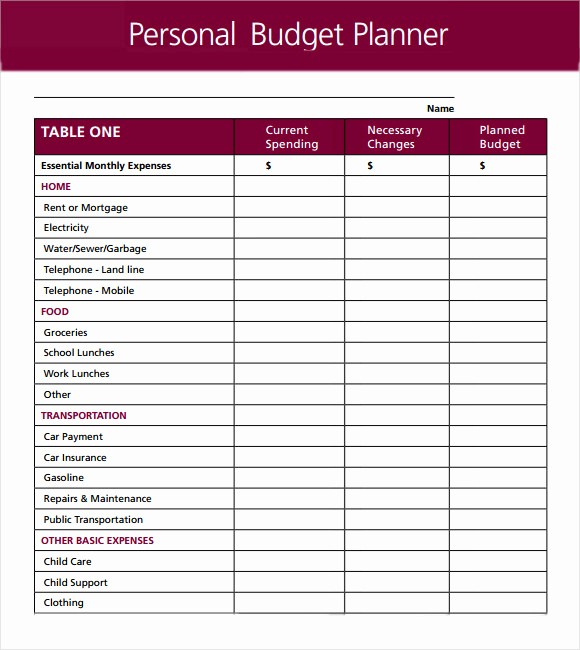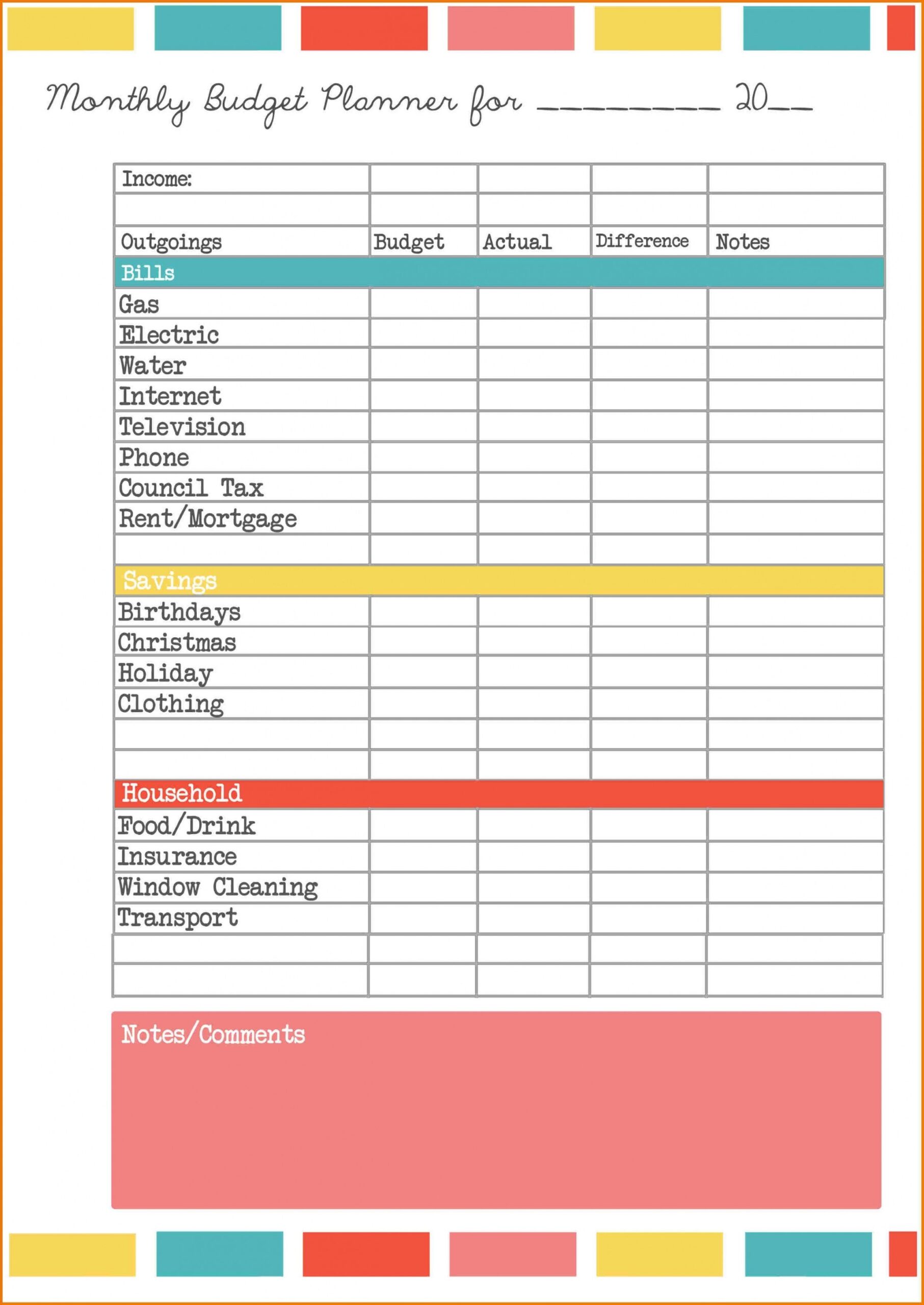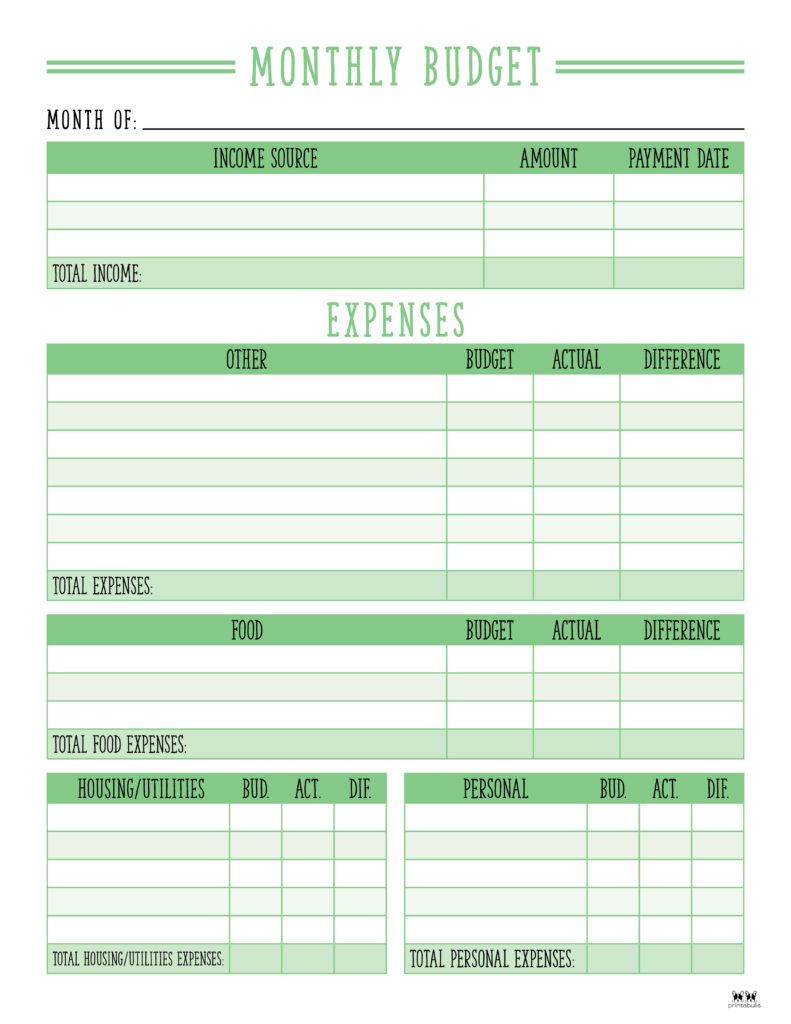Creating a single-person monthly budget is a crucial step toward financial stability and independence. Whether you are a recent college graduate, a young professional starting out in your career, or someone who wants to take control of your finances, having a budget helps you track your income and expenses, prioritize your spending, and save for future goals.
Without a budget, it’s easy to overspend, live paycheck to paycheck, and accumulate debt. By creating a budget, you can ensure that you are living within your means, saving for emergencies, and working towards your financial goals.
How to Create a Single-Person Monthly Budget
Creating a single-person monthly budget may seem overwhelming at first, but with a systematic approach, you can easily get started. Here are the steps to follow:
1. Determine Your Income
The first step in creating a budget is to determine your monthly income. This includes all sources of income, such as your salary, freelance work, rental income, or any other sources. Make sure to consider the net income after deducting taxes and other deductions.
2. Track Your Expenses
Next, track your expenses for a month. This will give you an idea of where your money is going and help you identify areas where you can cut back. Use a spreadsheet, budgeting app, or simply pen and paper to record your expenses.
- Fixed Expenses: These are expenses that remain the same each month, such as rent, utilities, and insurance.
- Variable Expenses: These are expenses that fluctuate from month to month, such as groceries, entertainment, and transportation.
- Discretionary Expenses: These are non-essential expenses, such as eating out, shopping, and vacations.
3. Categorize Your Expenses
Once you have tracked your expenses, categorize them into different categories. This will help you see where you are spending the most and identify areas where you can make adjustments. Common categories include housing, transportation, groceries, entertainment, and debt payments.
4. Set Financial Goals
Now that you have a clear picture of your income and expenses, it’s time to set financial goals. Determine what you want to achieve in the short term and long term. This could be saving for a down payment on a house, paying off debt, or building an emergency fund. Set specific, measurable, achievable, relevant, and time-bound (SMART) goals.
5. Create a Budget Plan
Based on your income, expenses, and financial goals, create a budget plan. Allocate your income towards different expense categories and savings goals. Make sure to prioritize your essential expenses and savings before allocating money toward discretionary expenses.
6. Monitor and Review
Once you have created your budget, it’s important to monitor your spending and review your budget regularly. Track your expenses throughout the month and compare them to your budget. This will help you stay on track and make adjustments if necessary.




Tips for a Successful Single-Person Monthly Budget
Creating a single-person monthly budget is just the first step. To make your budget successful, consider the following tips:
- Be Realistic: Ensure that your budget is realistic and achievable. Don’t set overly strict spending limits that are impossible to follow.
- Automate Savings: Set up automatic transfers to your savings account each month. This way, you won’t be tempted to spend the money and can build your savings effortlessly.
- Track Your Expenses: Continuously track your expenses to ensure that you are staying within your budget. This will help you identify any areas where you are overspending and make adjustments accordingly.
- Review and Adjust: Regularly review your budget and make adjustments as needed. Your financial situation and goals may change over time, so it’s important to keep your budget updated.
- Stay Motivated: Keep your financial goals in mind and stay motivated. Remind yourself of the benefits of budgeting and the progress you are making toward your goals.
- Seek Professional Help: If you are struggling with creating or sticking to your budget, consider seeking help from a financial advisor or counselor. They can provide guidance and support to help you achieve your financial goals.
The Benefits of Having a Single-Person Monthly Budget
Creating and sticking to a single-person monthly budget offers numerous benefits:
- Financial Awareness: A budget helps you become more aware of your income, expenses, and spending habits. It allows you to take control of your finances and make informed decisions.
- Debt Reduction: By tracking your expenses and prioritizing debt payments, a budget can help you pay off debt faster and reduce financial stress.
- Savings and Emergency Fund: A budget helps you allocate money towards savings and build an emergency fund. This provides a financial safety net and prepares you for unexpected expenses.
- Financial Goals: With a budget, you can set and achieve your financial goals, whether it’s saving for a vacation, buying a car, or retiring early.
- Peace of Mind: By having control over your finances and knowing where your money is going, you can enjoy peace of mind and reduce financial anxiety.
Sample Single-Person Monthly Budget
Here is an example of a single-person monthly budget:
- Income: $3,000
- Fixed Expenses:
- Rent: $1,000
- Utilities: $200
- Insurance: $100
- Variable Expenses:
- Groceries: $300
- Transportation: $150
- Entertainment: $200
- Discretionary Expenses:
- Eating Out: $150
- Shopping: $100
- Vacation: $200
- Savings: $500
Remember, this is just a sample budget and should be customized based on your income, expenses, and financial goals.
Conclusion
Creating a single-person monthly budget is a valuable tool for managing your finances, achieving your financial goals, and gaining financial independence. By following the steps outlined in this guide and implementing the tips provided, you can take control of your finances, reduce stress, and build a solid foundation for your financial future.
Single-Person Monthly Budget Template Excel – Download
